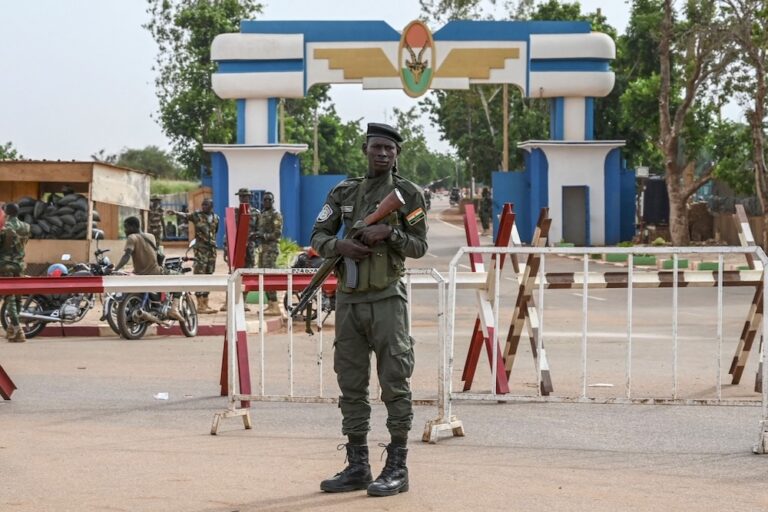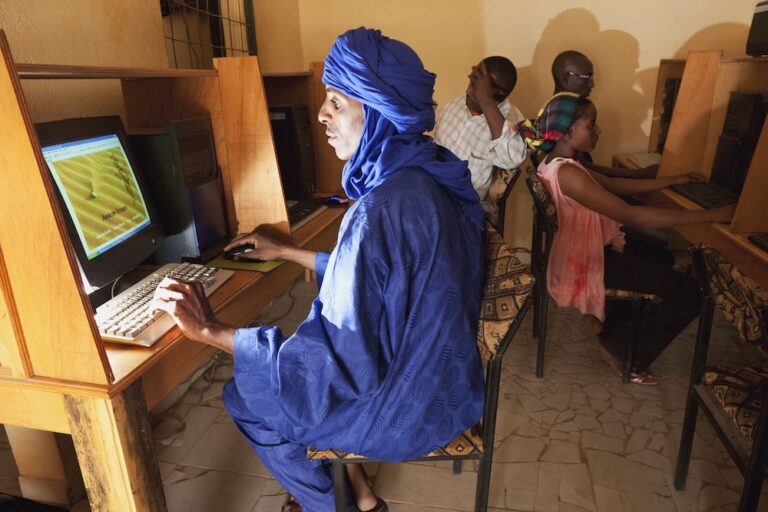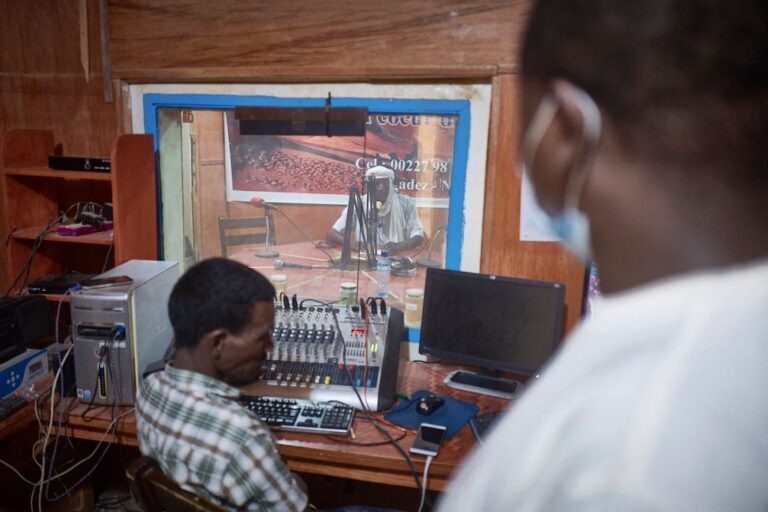(RSF/IFEX) – Reporters Without Borders has voiced concern about a rapid deterioration in press freedom in Niger, especially in the north, following the imposition on 19 July 2007 of a one-month ban on the retransmission of French public radio station Radio France Internationale’s (RFI) programmes throughout the country. “There have been many press freedom violations […]
(RSF/IFEX) – Reporters Without Borders has voiced concern about a rapid deterioration in press freedom in Niger, especially in the north, following the imposition on 19 July 2007 of a one-month ban on the retransmission of French public radio station Radio France Internationale’s (RFI) programmes throughout the country.
“There have been many press freedom violations since fighting broke out in the north of the country,” the organisation said. “It is time the government kept its promises. In 2003, President Mamadou Tandja promised to amend the law in order to decriminalize press offences. The required amendments were supposed to have been completed in March of this year, but nothing was done.”
Reporters Without Borders added: “Daouda Diallo, the chairman of the High Council for Communication (CSC), should also understand that systematically cracking down on critical journalists is not in the country’s interest and, on the contrary, just fuels tension.”
It was the CSC that suspended RFI broadcasts for one month on 19 July, accusing it of covering the fighting in the northern Agadez region in an “unbalanced and biased” manner and of broadcasting “mendacious reports hiding the reality” of what was taking place there.
The CSC suspended the fortnightly “Aïr-Info” for three months at the end of June for publishing reports on the fighting between the army and the Niger Movement for Justice (MNJ), a Tuareg rebel group. It also sent warnings to three other newspapers ? “Libération”, “L’Opinion” and “L’Evènement” – for the same reason. All four newspapers are accused of “trying to justify criminal activity and violence.”
“Aïr-Info” editor Ibrahim Manzo Diallo reacted to the three-month suspension by launching a new weekly newspaper called “Info-Aïr” on 9 July with the declared aim of “providing reliable information” about the situation in the north. He was detained for several hours at the gendarmerie in Agadez on 12 July and questioned about his reasons for launching the new newspaper.
The authorities banned visiting RFI reporter Gislaine Dupont from travelling to the north of the country on 11 July. Moussa Kaka, who is the Reporters Without Borders and RFI correspondent in Niamey, said he received a death threat on 14 July from army chief of staff Gen. Moumouni Boureima (see IFEX alerts of 20, 18 and 12 July 2007).
Niger’s oil- and uranium-rich north has seen frequent clashes between Tuareg rebels and the army since the start of February. The government refuses to acknowledge the existence of a rebellion and refers to the MNJ’s leaders as “bandits” or “assailants” who want to “seize Niger’s interests.”
MNJ leader Agaly Alambo told AFP he was “definitely not” seeking independence and that the movement’s only condition for a return to peace was greater recognition of Tuareg rights, above all by means of greater integration into the army, paramilitary units and the mining sector.


